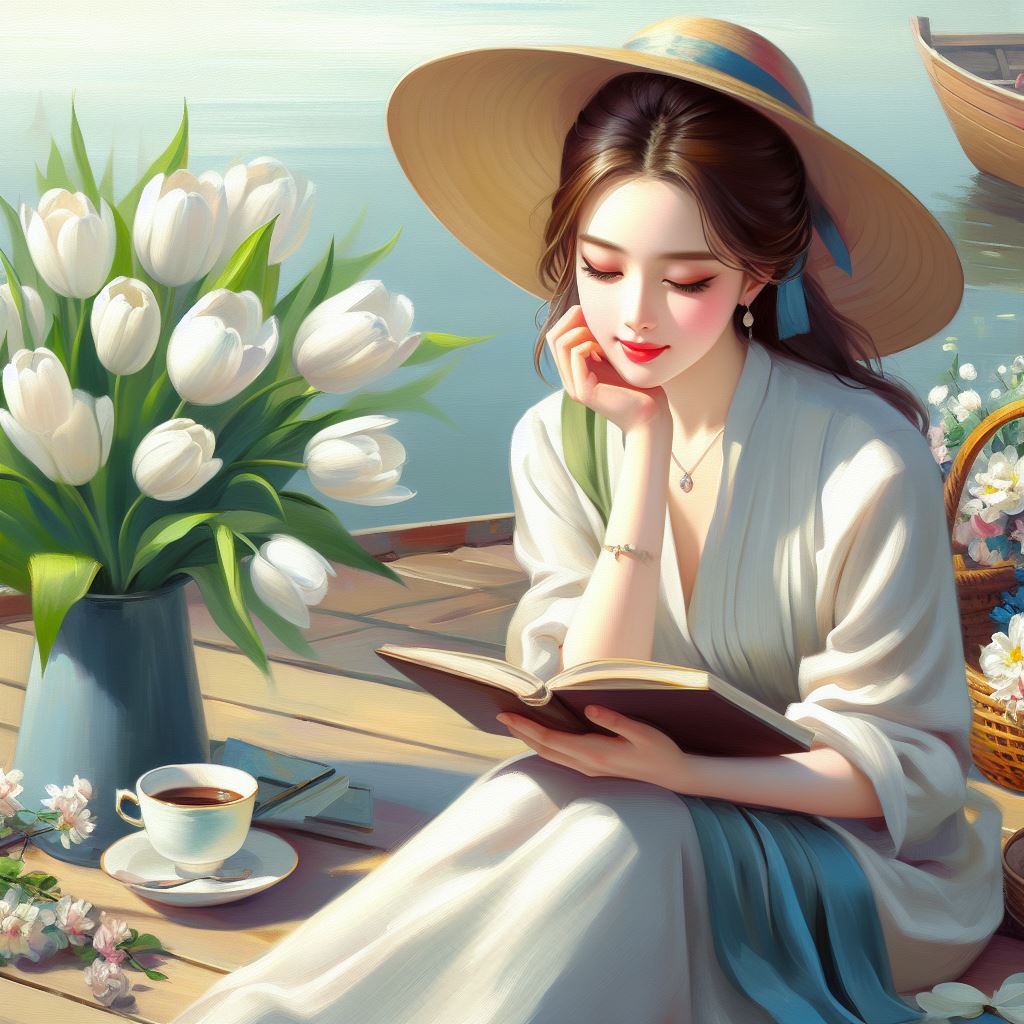
Why Fantasy Novels Matter in the Modern World
Contrary to mere escapism into imaginary worlds, fantasy novels possess unexpected significance in the contemporary era. Fantasy narratives frequently delve into enduring themes such as the eternal battle between good and evil, the allure of power and its corrupting influence, and the relentless fight for survival. These themes resonate with audiences today, mirroring anxieties about climate change, political turmoil, and social inequalities.
“Even the smallest person can change the course of the future.” – Gandalf the Grey (The Lord of the Rings)
Fantasy realms provide authors with laboratories to examine diverse social frameworks, questioning the prevailing norms and encouraging contemplation of our communities. Issues like gender roles, environmentalism, and racial prejudice can be addressed in a safe space, sparking conversations about a better future.
“We live in a world that is made by stories, not just of words.” – Ursula K. Le Guin (A Wizard of Earthsea)
Havens for Hope and Resilience: In a world often dominated by cynicism, fantasy offers an escape to worlds where good prevails and even the most seemingly ordinary individual can rise to the occasion. These stories provide a sense of hope and inspire us to face challenges in our own lives.
“Hope is a fragile thing, but it endures even in the cracks.” – N.K. Jemisin (The Broken Earth Trilogy)
Fantasy frequently finds inspiration in the myths and legends of ancient civilizations, resonating with echoes from the past. By exploring these stories, we gain a deeper understanding of the values, beliefs, and anxieties of those who came before us.
“The land remembers, and so do I.” – Marion Zimmer Bradley (The Mists of Avalon)

Old Civilizations Live On:
Fantasy novels don’t merely reflect our present; they also keep the spirits of old civilizations alive
Preserving Traditions: Fantasy incorporates elements of folklore, mythology, and religious beliefs from various cultures. These stories act as vessels, passing traditions and values to new generations.
Fantasy authors frequently reexamine traditional myths, infusing them with fresh perspectives and ensuring their relevance to modern audiences. This process ensures these stories continue to spark discussions and inspire new interpretations.
Celebrating Diversity: Unlike some historical fiction, Fantasy can celebrate the richness and complexity of past cultures without getting bogged down in historical accuracy. This allows for a more inclusive and imaginative exploration of the past.
Fantasy novels are more than just escapist entertainment. They serve as powerful tools for social commentary, offer hope and inspiration, and keep the echoes of old civilizations alive for future generations. So, the next time you delve into a fantastical world, remember the valuable lessons and connections it holds to our own world, both past and present.
Fantasy literature takes readers on a journey to fantastical realms, where enchantment fills the atmosphere, legendary beings wander, and protagonists set out on grand adventures. These ten classic works have not only captivated readers for generations, but they have also explored timeless themes, shaped our understanding of fantasy, and reflected the cultures and anxieties of their times.
1. The Lord of the Rings (1954-1955) by J.R.R. Tolkien:
Theme: The detrimental impact of authority and the significance of persistence in the face of insurmountable challenges.
Famous Character: Frodo Baggins, the modest hobbit entrusted with the duty of eliminating the One Ring.
Language Features: Tolkien enriched his world by crafting the intricate and captivating languages of Elvish and Quenya, thereby enhancing its depth.
Effect on Society: The genre of high fantasy has been defined, serving as an inspiration for numerous imitators and video games.
Reflection of Civilization: Explores the perils of war and the destructive nature of totalitarian regimes.

2. The Chronicles of Narnia (1950-1956) by C.S. Lewis:
Theme: The battle between good and evil, faith and doubt, with Christian symbolism woven into the narrative.
Famous Character: Aslan, the regal lion who personifies bravery, selflessness, and salvation..
Language Features: This straightforward and concise writing style is intended for a young audience, while also containing deep symbolic meaning.
Effect on Society: A cornerstone of children’s fantasy, sparking imaginations and encouraging exploration of faith.
Reflection of Civilization: Addresses anxieties about war and loss of innocence, offering hope and a sense of wonder.
3. The Earthsea Cycle (1964-2001) by Ursula K. Le Guin:
Theme: The dangers of unchecked power, the importance of balance and self-knowledge in magic.
Famous Character: Ged, a young mage who grapples with his pride and its destructive consequences.
Language Features: Evocative prose that emphasizes the beauty and dangers of the natural world.
Effect on Society: Broke barriers with a female protagonist and explored themes of environmentalism and responsibility.
Reflection of Civilization: Challenges traditional power structures and calls for harmony between humans and nature.
4. A Wizard of Earthsea (1964) by Ursula K. Le Guin:
Theme: Coming of age, accepting responsibility for one’s actions, facing the consequences of unchecked ambition.
Famous Character: Ged (Ged the Sparrowhawk), a young wizard who unleashes a shadow creature he cannot control.
Language Features: Lush prose that evokes the beauty and danger of the Archipelago world.
Effect on Society: Established Le Guin as a major voice in fantasy, particularly for its exploration of gender roles.
Reflection of Civilization: A coming-of-age story that resonates with readers grappling with power and identity.
5. The Dune series (1965-present) by Frank Herbert:
Theme: Environmentalism, political intrigue, the dangers of messianic figures and blind faith.
Famous Character: Paul Atreides, a young duke thrust into a complex web of power struggles on the desert planet Arrakis.
Language Features: Rich world-building with complex terminology for the planet’s ecology and political factions.
Effect on Society: Influenced science fiction and fantasy with its sophisticated political themes and ecological awareness.
Reflection of Civilization: Explores the exploitation of resources, the dangers of religious fanaticism, and the quest for power.
6. The Dragonriders of Pern series (1968-present) by Anne McCaffrey:
Theme: Community, the importance of telepathic bonds, and the balance between technology and nature.
Famous Character: Lessa, a youthful lady who establishes an extraordinary connection with a dragon capable of breathing fire.
Language Features: Creation of a unique telepathic language (“High Speech”) used by the dragonriders.
Effect on Society: Helped popularize the subgenre of science fantasy and empowered young female protagonists.
Reflection of Civilization: Explores themes of social responsibility, environmental stewardship, and the power of cooperation.
7. The Mists of Avalon (1983) by Marion Zimmer Bradley:
Theme: Arthurian legend retold from the perspective of the women, exploring themes of power, betrayal, and the cyclical nature of history.
Famous Character: Morgaine, Arthur’s half-sister, is a powerful sorceress who challenges the patriarchal society.
Language Features: Lush and descriptive prose that captures the beauty and harshness of medieval Britain.
Effect on Society: The retellings of mythology ignited the feminist movement and questioned the conventional depictions of women in the Arthurian legend.
Reflection of Civilization: Explores the power dynamics between genders, the complexities of war, and the search for truth in a world shrouded in myths.

8. American Gods (2001) by Neil Gaiman:
Theme: The conflict between ancient and contemporary deities, the waning influence of myth in a modern society.
Famous Character: Shadow Moon, a reformed criminal who assumes the position of guardian for an enigmatic person by the name of Mr. Wednesday.
Language Features: Blends modern slang with references to mythology from various cultures, creating a unique voice.
Effect on Society: Showcased the power of mythology in a contemporary setting and explored the immigrant experience in America.
Reflection of Civilization: Examines the loss of traditional beliefs, the rise of technology, and the struggle for identity in a globalized world.
9. The Goblin Emperor (2014) by Katherine Addison:
Theme: Empathy, the challenges of leadership, and the importance of building bridges between cultures.
Famous Character: Maia, a half-goblin who unexpectedly ascends to the Elven throne and must navigate ruling a kingdom that is cautious of its unanticipated leader.
Language Features: Exquisite prose that captures the beauty and formality of Elven court life.
Effect on Society: Celebrates diversity and acceptance in fantasy, offering a heartwarming story about overcoming prejudice.
Reflection of Civilization: Explores themes of cultural exchange, the importance of diplomacy, and the power of compassion.
10. The Broken Earth Trilogy (2015-2017) by N.K. Jemisin:
Theme: Revolution, resilience in the face of oppression, and the cyclical nature of violence and change.
Famous Character: Essun, a woman seeking revenge for her son’s abduction while navigating a world on the brink of cataclysm.
Language Features: Powerful and evocative prose that captures the harshness of the world and the characters’ internal struggles.
Effect on Society: One of the first works of fantasy to win the Hugo Award for three consecutive years, celebrated for its diverse characters and exploration of social justice.
Reflection of Civilization: Examines the roots of oppression, the fight for liberation, and the enduring human spirit in the face of unimaginable hardship.
These ten classic fantasy novels represent a mere glimpse into the vast and vibrant world of the genre. Each one offers unique themes, unforgettable characters, and captivating language that continues to resonate with readers across generations. They not only transport us to fantastical worlds but also serve as mirrors reflecting our own hopes, fears, and anxieties. As we delve into these stories, we engage with timeless questions about good and evil, power and responsibility, and the enduring human spirit.
In conclusion, the legacy of these classic fantasy novels lies in their ability to:
Spark imaginations and create wonder.
Explore complex themes that resonate with readers.
Challenge societal norms and push boundaries.
Offer a sense of escape while reflecting the realities of our world.
Celebrate the power of storytelling and its ability to transport us beyond the ordinary.
So, the next time you pick up a classic fantasy novel, remember that you’re not just embarking on an adventure; you’re joining a conversation that has been ongoing for centuries

Thank you for the auspicious writeup It in fact was a amusement account it Look advanced to more added agreeable from you By the way how could we communicate
Temp mail This is really interesting, You’re a very skilled blogger. I’ve joined your feed and look forward to seeking more of your magnificent post. Also, I’ve shared your site in my social networks!
Ive read several just right stuff here Certainly price bookmarking for revisiting I wonder how a lot effort you place to create this kind of great informative website.
I was just as enthralled by your work as you were. Your sketch is elegant, and your written content is sophisticated. However, you seem concerned about potentially delivering something questionable soon. I’m confident you’ll resolve this issue quickly and return to your usual high standards.
Techno rozen Hi there to all, for the reason that I am genuinely keen of reading this website’s post to be updated on a regular basis. It carries pleasant stuff.
Live Coin Watch I appreciate you sharing this blog post. Thanks Again. Cool.
I was suggested this web site by my cousin Im not sure whether this post is written by him as no one else know such detailed about my trouble You are incredible Thanks
Hi Neat post Theres an issue together with your web site in internet explorer may test this IE still is the marketplace chief and a good component of people will pass over your fantastic writing due to this problem
I truly appreciate your technique of writing a blog. I added it to my bookmark site list and will
I’m often to blogging and i really appreciate your content. The article has actually peaks my interest. I’m going to bookmark your web site and maintain checking for brand spanking new information.
I do not even understand how I ended up here, but I assumed this publish used to be great
I really like reading through a post that can make men and women think. Also, thank you for allowing me to comment!
Nice post. I learn something totally new and challenging on websites
Good post! We will be linking to this particularly great post on our site. Keep up the great writing
I just like the helpful information you provide in your articles
I really like reading through a post that can make men and women think. Also, thank you for allowing me to comment!
Good post! We will be linking to this particularly great post on our site. Keep up the great writing
hiI like your writing so much share we be in contact more approximately your article on AOL I need a specialist in this area to resolve my problem Maybe that is you Looking ahead to see you
I was recommended this website by my cousin I am not sure whether this post is written by him as nobody else know such detailed about my trouble You are amazing Thanks
I just wanted to drop by and say how much I appreciate your blog. Your writing style is both engaging and informative, making it a pleasure to read. Looking forward to your future posts!
“This article is really informative and well-written!”
“This article is really informative and well-written!”
“Your writing style is engaging and clear, love it!”
“I agree with your points, very insightful!”
Bwer Company is a top supplier of weighbridge truck scales in Iraq, providing a complete range of solutions for accurate vehicle load measurement. Their services cover every aspect of truck scales, from truck scale installation and maintenance to calibration and repair. Bwer Company offers commercial truck scales, industrial truck scales, and axle weighbridge systems, tailored to meet the demands of heavy-duty applications. Bwer Company’s electronic truck scales and digital truck scales incorporate advanced technology, ensuring precise and reliable measurements. Their heavy-duty truck scales are engineered for rugged environments, making them suitable for industries such as logistics, agriculture, and construction. Whether you’re looking for truck scales for sale, rental, or lease, Bwer Company provides flexible options to match your needs, including truck scale parts, accessories, and software for enhanced performance. As trusted truck scale manufacturers, Bwer Company offers certified truck scale calibration services, ensuring compliance with industry standards. Their services include truck scale inspection, certification, and repair services, supporting the long-term reliability of your truck scale systems. With a team of experts, Bwer Company ensures seamless truck scale installation and maintenance, keeping your operations running smoothly. For more information on truck scale prices, installation costs, or to learn about their range of weighbridge truck scales and other products, visit Bwer Company’s website at bwerpipes.com.
Rely on BWER Company for superior weighbridge solutions in Iraq, offering advanced designs, unmatched precision, and tailored services for diverse industrial applications.
“I agree with your points, very insightful!”
“I appreciate the detailed explanation, very helpful!”
“This article is really informative and well-written!”
I loved as much as you will receive carried out right here. The sketch is attractive, your authored material stylish. nonetheless, you command get got an impatience over that you wish be delivering the following. unwell unquestionably come more formerly again since exactly the same nearly a lot often inside case you shield this hike.
Businessiraq.com is not just a business directory; it’s also a valuable resource for job seekers and employers in Iraq. The website’s job section features a wide range of Iraq jobs, including career opportunities in various industries, from entry-level positions to senior management roles. With its easy-to-use job search functionality, users can quickly find and apply for jobs that match their skills and experience. Employers can also advertise their job openings on the website, reaching a targeted audience of qualified candidates. By connecting job seekers with employers, Businessiraq.com plays a vital role in supporting the growth and development of Iraq’s workforce.
In addition to business listings and news, Job opportunities in Iraq are prominently featured on Businessiraq.com. The online job portal connects job seekers with employers looking to fill positions in various sectors. This feature is particularly beneficial for those seeking to work in Iraq’s burgeoning economy, offering a streamlined approach to finding employment. With a diverse range of job postings, from skilled trades to corporate positions, Businessiraq.com serves as an invaluable resource for both local talent and expatriates keen to contribute to the country’s growth.
Your writing is like a breath of fresh air in the often stale world of online content. Your unique perspective and engaging style set you apart from the crowd. Thank you for sharing your talents with us..
“This is exactly what I was looking for, thank you!”
“I appreciate the detailed explanation, very helpful!”
“Amazing post, keep up the good work!”
“Great content, learned a lot from this post!”
hi!,I love your writing very a lot! share we keep up a correspondence extra about your article on AOL? I need an expert in this house to solve my problem. Maybe that is you! Taking a look forward to peer you.
“I agree with your points, very insightful!”
“Your writing style is engaging and clear, love it!”
I think this site contains very fantastic composed articles posts.
“This article is real
I was recommended this website by my cousin I am not sure whether this post is written by him as nobody else know such detailed about my difficulty You are wonderful Thanks
I’ve recently started a site, the info you offer on this site has helped me tremendously. Thanks for all of your time & work. “The achievements of an organization are the results of the combined effort of each individual.” by Vince Lombardi.
I have learn some good stuff here. Definitely worth bookmarking for revisiting. I wonder how a lot attempt you put to create this kind of great informative website.
This is a topic close to my heart cheers, where are your contact details though?
Hello my friend! I wish to say that this post is awesome, nice written and include approximately all vital infos. I’d like to see more posts like this.
I think this web site has got some very superb information for everyone : D.
Thanks for your marvelous posting! I seriously enjoyed reading it, you might be a great author.I will remember to bookmark your blog and will come back later in life. I want to encourage yourself to continue your great job, have a nice morning!
Outstanding post however , I was wondering if you could write a litte more on this subject? I’d be very thankful if you could elaborate a little bit more. Many thanks!
You actually make it appear really easy along with your presentation however I to find this topic to be really something that I believe I’d by no means understand. It kind of feels too complicated and extremely large for me. I am looking forward in your next publish, I will attempt to get the grasp of it!
Throughout this great scheme of things you secure a B+ just for effort. Where exactly you actually lost me was in your specifics. As people say, the devil is in the details… And that could not be more accurate in this article. Having said that, let me reveal to you precisely what did deliver the results. The text is certainly quite convincing which is possibly the reason why I am making an effort to opine. I do not make it a regular habit of doing that. Next, although I can easily see the jumps in reasoning you make, I am not necessarily convinced of how you seem to connect your details which in turn help to make the conclusion. For now I shall subscribe to your issue however hope in the near future you link your facts better.
I view something really special in this site.